

Tao Te Ching
Search Sages
Enter all or part of an sage's name or biography in the fields below, then press tab or enter to filter the list of Authors. Click the headings Name or Biography to sort by that column. Diacritics are ignored when searching.
Click on the author's name to go to their page.
| Author Name | Biography |
|---|---|
| Wang Bi | 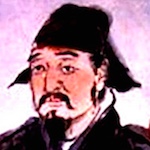 Wang Bi Wang BiAlthough he only lived 23 years, for more than 1,700 years most Chinese scholars have considered Wang Bi the most important interpreter of the Tao Te Ching and his edition of this has been used for almost every translation into a Western language. A political theorist who challenged the prevailing Confucian orthodoxy, he interpreted Lao Tzu in a way consistent with Confucius and compatible with both indigenous Chinese beliefs and the introduction of Indian Buddhism. Interesting and inspiring how one so young can understand so deeply and influence the course of history so much. |
| Wang Anshi | 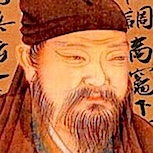 Wang Anshi Wang AnshiPoet, economist, statesman, and one of China’s most famous prime ministers during a time of rampant nepotism and an extreme imbalance between the rich and the poor; Wang initiated major reforms to break up monopolies, expand the civil service examination system, increase currency, and begin social welfare programs to “prevent the working classes from being ground into dust by the rich.” Although removed from power and imprisoned by political rivals, his reforms still ripple through Chinese history. He started public orphanages and hospitals, set up price and wage controls, pension funds for the old, poor, and unemployed — all while writing commentaries on Lao Tzu and some of China’s most famous poems. |
| Walt Whitman | 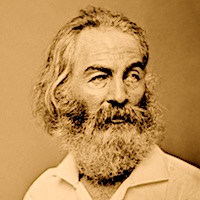 Walt Whitman Walt WhitmanPremier "poet of democracy" and model for Dracula “Father of free verse,” one of the most influential American poets, humanist, journalist, Civil War volunteer nurse; Whitman blended realism and transcendentalism and became known as the first "poet of democracy.” His most famous work, Leaves of Grass, was called everything from "trashy, profane & obscene, the author a pretentious ass" to a work more central to American culture than Melville's Moby-Dick, Twain's Huckleberry Finn, and Emerson's The Conduct of Life. Vociferously criticized for being obscene with sexuality themes, it was admired by Thoreau, Ralph Waldo Emerson, Amos Bronson Alcott, and Oscar Wilde. Though biographers assert that Whitman was gay, he always denied it and claimed to have 6 illegitimate children. In a contrast between his poetry and personal views, he promoted equality and true democracy in the former, status quo views of nationalism and racism in the latter. His poetic and vagabond lifestyle inspired the Beat movement, Allen Ginsberg, Jack Kerouac, Gary Snyder, Lawrence Ferlinghetti, Bob Dylan, and Bram Stoker who used him as the model for his character, Dracula. |
| Walpola Rahula Thero | 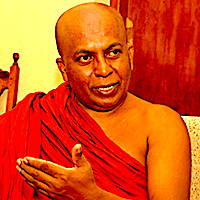 Walpola Rahula Thero Walpola Rahula Thero“Supreme Master of Buddhist Scriptures” History professor, Ph.D. in philosophy, active socialist, and first Buddhist monk to hold a chair in a western university; Walpola both brought a more clear conception of Buddhism to the Western world and practical kind of Western politics to Sri Lanka. Given the title, “Supreme Master of Buddhist Scriptures,” he wrote extensively and taught at many universities including UCLA, Swarthmore College, and Western University. He encouraged monks to not only study and practice Buddhism but also to get involved in the political process as a way to translate meditative awareness into a practical influence on society and culture. |
| W.B. (William Butler) Yeats | 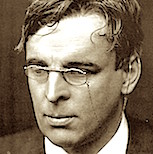 W.B. (William Butler) Yeats W.B. (William Butler) YeatsSymbolist poet, Irish Senator, and icon of 20th-century literature; Yeats won the Nobel Prize for literature in 1923 which enabled him for the first time to pay off his and his father’s debts. Though dabbling in the occult and automatic writing in his youth, he became a standard-bearer for Irish cultural independence and nationalism. Challenging the Irish Catholic political dominance, he championed divorce rights and confronted religious leaders but later supported aristocratic over democratic rule. Called by Ezra Pound "the only poet worthy of serious study,” his personal evolution of Hindu-based spiritualism helped inspire some of the "most potent images in twentieth-century poetry.” |
| W. S. Gilbert | 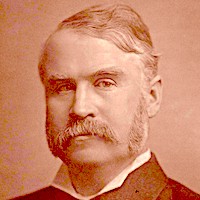 W. S. Gilbert W. S. GilbertInnovative, influential, inspiring dramatist Poet, illustrator, and dramatist; Gilbert wrote 14 comic operas with music written by Sir Arthur Sullivan and over 75 plays—many still being performed c. 150 years after they were written. Ridiculing party politics, nepotism, patriotism, and the British class system; they may have not gone out of style because they were never in any kind of conventional style to start. The innovative creativity in their performances came in part from their ability to finance the productions themselves rather than having to rely on conventional funding that required artistic restraints and conformance to traditional methods. Gruff and quick-tempered on the outside, warm and a loyal friend when close, Gilbert set new styles and became an important influence on most playwrights that came after him especially in the line of Oscar Wilde and George Bernard Shaw. |
| W. E. B. Du Bois | 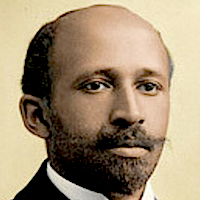 W. E. B. Du Bois W. E. B. Du BoisW. E. B. Du Bois, William Edward Burghardt (1868 – 1963) |
| Vyasa | 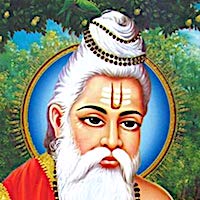 Vyasa VyasaHindu immortals, Vishnu avatar, 5th incarnation of Brahma “The one who classified the Vedas,” one of the seven Hindu immortals, and Vishnu avatar; Vyasa became author of the Mahabharata. Also credited with writing the eighteen major Purāṇas; he compiled, documented and categorized many ancient Indian texts that had been passed down through long oral traditions. The 10th Sikh guru, Gobind Singh described him as the 5th incarnation of Brahma and praised him for preserving the ancient Vedic knowledge. |
| Vyālipa | 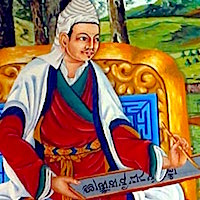 Vyālipa VyālipaMahasiddha #84 Vyalipa བྱཱ་ལི་པ། “The Courtesan's Alchemist (10th century) After 13 years and the loss of all his wealth, alchemist and searcher for the “elixir of immortality,” Vyalipa gave up his dedicated quest, threw his manual in a river, and becoming a wandering beggar. Later a prostitute who found the book as well as the missing ingredient Vyalipa was unsuccessfully looking for, paid him to renew his quest. They discovered elixir but refused to share it and became imprisoned in a deathless, blissful but empty psychological god realm. According to Taranatha though, Vyalipa later returned to the world, shared the secret elixir with Carpati, and became a famous realization-song singer-songwriter. Mahasiddha 84 |
| Voltaire, François-Marie Arouet | 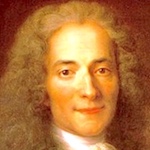 Voltaire, François-Marie Arouet Voltaire, François-Marie ArouetNemesis to tyrants and fanatics of all styles, powerful fighter for civil rights, separation of church and state, freedom of speech and religion; Voltaire drank up to 72 cups of coffee a day and wrote more than 2,000 books and pamphlets. Admiring Confucian ethics and political theory, his writings inspired the founders of America, the best thinkers of his time, numerous kings, queens and world leaders, millions of people in every generation since. To a large extent we owe to his influence much of the freedoms in the world today; the humane treatment of the insane, sick, and criminal; the number of libraries, schools, and universities for common people. Historian Will Durant wrote, “When we cease to honor Voltaire, we shall be unworthy of freedom.” |
| Virupa | 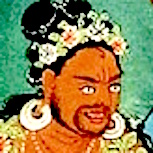 Virupa VirupaMahasiddha #3 Though the hero of many miraculous stories of walking on water, making the sun in the sky stop moving, subjugating demons and over-coming Hindu gods; the main symbolism of Virupa’s life revolved around understanding the sense and not just the words, of following a path of moment-to-moment awareness rather than an external set of values, ethics, and discipline. Revered in the Sakya lineage of Tibetan Buddhism as the first lama in the “Journey without Goal School,” he was kicked out of a monastery after living and practicing there for more than 25 because of eating meat and drinking alcohol. The monks soon recognized their mistake and begged him to return but he refused and continued his aimless wondering exemplifying Lao Tzu’s description of wu wei. |
| Virginia Woolf | 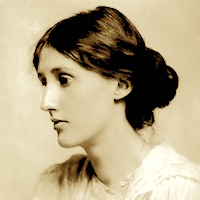 Virginia Woolf Virginia WoolfStream of consciousness writing pioneer, one of the most influential 20th century writers, “the major lyrical novelist in the English language,” and “feminist inspiration;” Woolf struggled with mental illness all her life and yet wrote some of the era’s best short stories and novels, some translated into 50 languages. A deep influence on world culture, she promoted universal education, intellectual freedom, class equality, and feminism. Still popular today, the National Portrait Gallery in London sells more of her postcards than of any other. With a deep understanding of inner, psychological struggle, her characters expose the sacred within the ordinary, the profound in the midst of the commonplace. |
| Virgil | 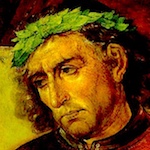 Virgil Virgil“The most lovable of Romans” and its greatest poet, advocate/inspiration/teacher for small farmers, Dante's guide through hell and purgatory, considered a great magician, seer, and saint as well as the embodiment of human knowledge and experience; Virgil began life as a poor farmer and once had to swim for his life to escape soldiers. Given patronage by Augustus he wrote the Aeneid that became the Roman national epic and standard text for school curricula after Augustus refused Virgil’s dying wish to have it burned. For hundreds of years his poems were opened at random as an oracle for insight into uncertainty and to solve problems. |
| Vinapa | 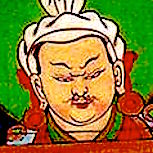 Vinapa VinapaOnly son of a King, so obsessed with music he would barely stop for food, Vinapa refused to learn about politics and leadership, would only listen to and play music. In a desperate attempt to win his attention, his parents found the great yogin Buddhapa to teach him. His attention was won but the master gave him a music meditation practice saying, “Free yourself of all duality between the sound itself and what your mind perceives. Without concept or judgement, contemplate only pure sound.” Vinapa became enlightened and a great Mahasiddha teaching and benefiting countless beings. |
| Vimalkirti | 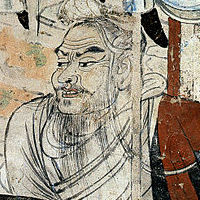 Vimalkirti VimalkirtiClose disciple of the Buddha who extended his teachings to common people One of the Buddha’s closest and most important disciples, Vimalkirti became known for his wisdom and ability to teach Dharma to not only monastics but to everyday, common people. Like the Buddha and born into a wealthy family, he also renounced his position and possessions but his teaching and influence extended back to people not willing to renounce so much. This helped shape the Buddhist traditions into welcoming everyone. Although sometimes considered legendary, teachings attributed to him on emptiness became a central theme in Buddhist philosophy and most traditions consider him an historical figure and a founding influence on the Chan and Zen traditions. |
| Viktor Frankl | 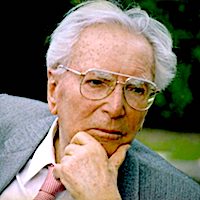 Viktor Frankl Viktor Frankl Brave and insightful concentration camp survivor A survivor of multiple Nazi concentration camps that claimed the lives of his mother, wife, and brother; Frankl developed a psychological approach—logotherapy—based on vivid personal experiences rather than hypothetical theories. He watched how people’s ability to survive in the most horrendous situations correlated with the degree of meaningfulness they could discover as well as seeing how this mirrored his own ability to live through and survive this almost unimaginable suffering. Before his concentration camp experiences he had already focused his work on depression and suicide which successfully prevented even one Viennese student suicide in 1931. After the war, he became an important inspiration for the humanistic psychology movement, wrote 39 books translated into 49 languages, received 29 honorary Ph.D. degrees and taught in locations all over the world. He convincingly debunked the still prevalent deception of finding happiness in relaxation, vacations, and retirement; and pointed instead toward the struggles of meeting challenges, working toward goals, and—most importantly—projects that make the world a better place. |
| Victor Hugo | 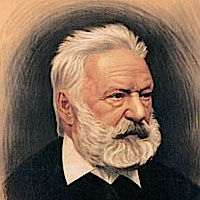 Victor Hugo Victor HugoLiterary pioneer, poet, and social justice provocateur Romantic literature pioneer, poet, artist, and one of the greatest French writers; Victor Hugo’s work influenced most of the social and political issues of his time. His literary success opened doors into the political world and he became more and more involved in politics. He campaigned against capital punishment and social injustice, for more freedom of the press, free education for children, universal voting rights, and a “United States of Europe.” While his books helped create important cultural and social shifts, his political efforts led to exile, a condemnation from Napoleon III, and death threats from mobs outside his house. His political work on ending the death penalty, however, did lead to its abolition in Geneva, Portugal, and Colombia. Two plus million people walked in his funeral procession and today almost all French cities have named streets after him. |
| Vasubandhu | 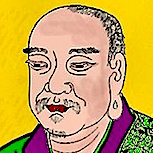 Vasubandhu Vasubandhu21st Zen Patriarch, poet, one of the most influential Indian Buddhist philosophers, and co-founder of the Yogacara school; Vasubandhu’s writings on Abhidharma are still widely studied as a major foundation of Mahayana teachings. The Second Patriarch of the most popular branch of Buddhism in Japan, the Jōdo Shinshū school that claims 20% of Japan’s population today; he pioneered the “Mind Only” tradition, the beginnings of Dzogchen, formal logic, and the non-dual nature of reality. These teachings seeped into Western philosophy through people like Immanuel Kant and George Berkeley. |
| Vasily Vasilievich Rozanov | 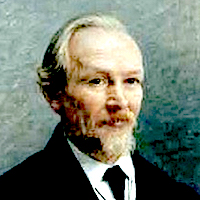 Vasily Vasilievich Rozanov Vasily Vasilievich RozanovOne of the most controversial Russian writers and philosophers, Dostoyevsky's "Underground Man,” and master of paradox; Rozanov blended criticizing the Russian church to fervent praise, from glorifying Judaism to anti-Semitism, from accepting the naturalness of homosexuality and sex in general to condemning homosexuals and accepting anti-sex Christian views. His open-minded and controversial free thought put him at odds with both the conservative Tsarist government as well as radicals like Lenin. His writings were suppressed and he died by starvation in a monastery shortly after the Russian revolution. He believed politics is obsolete and that "God doesn't want politics any more.” Little know outside Russia and only recently there, he was a deep influence and inspiration for many Russian intellectuals, writers, and philosophers and is now becoming popular with some western scholars. |
| Ursula Le Guin | 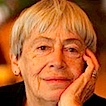 Ursula Le Guin Ursula Le GuinAt an early age, Le Guin saw her father making notes in an old book. In this way she discovered Lao Tzu who became a lifelong teacher and companion. Her father, a famous cultural anthropologist also exposed her to the native American shamanistic traditions. This led to a prolific and influential literary career with works translated into 31 languages and winning 21 Locus, 6 Nebula, 5 Hugo, a Newbery and World Fantasy, many “year's best” and other awards. Not just entertaining, these books challenged and positively shaped modern views on race, gender, society and the environment. |